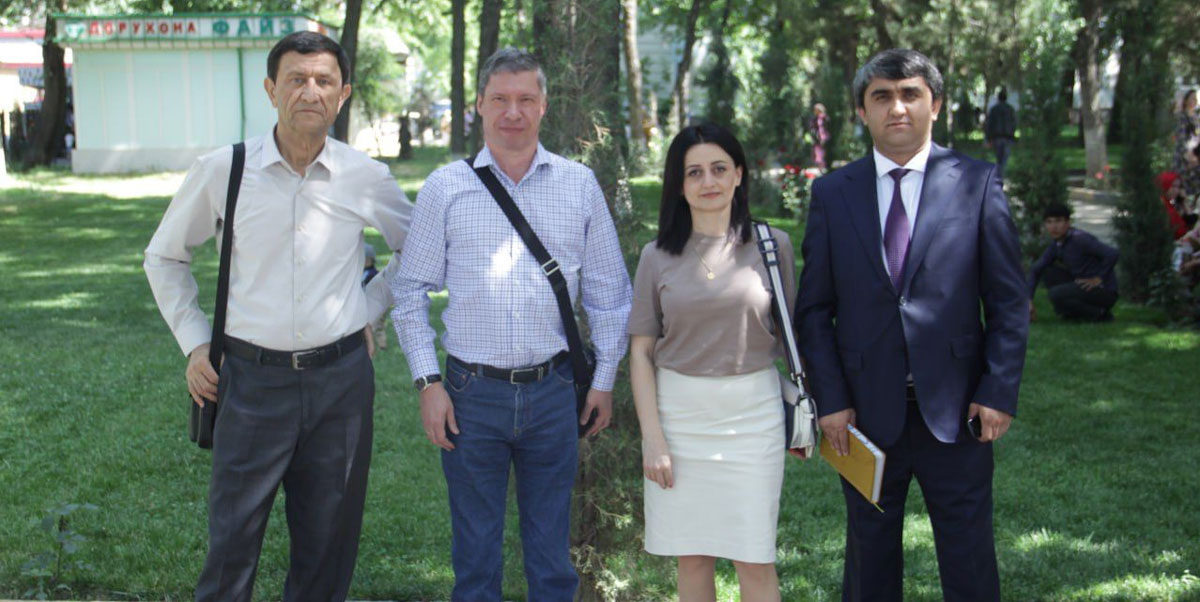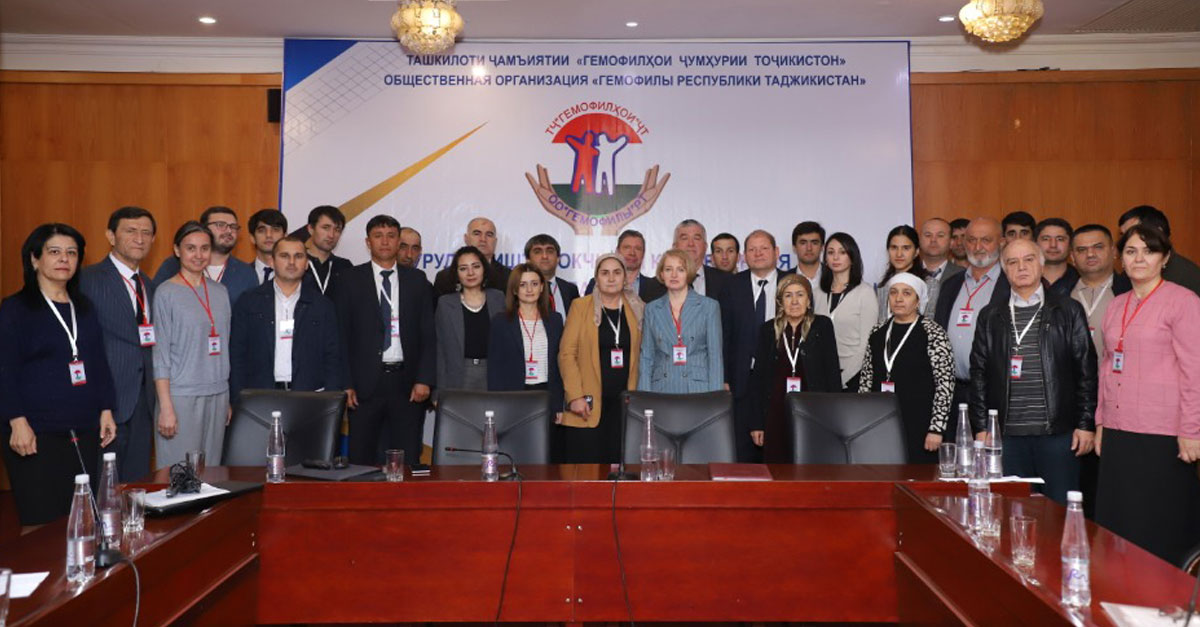Lack of adequate medical care and access to treatment products, short life expectancy, joint damage among young people, and other challenges plague PWBDs in Tajikistan. In 2022, the WFH Cornerstone Initiative was launched in the country to close the gap in diagnosis and treatment by providing support, expertise, and training. The goal of the initiative is to strengthen diagnostic and treatment capacity, and foster the organizational development of HST to help lay a solid foundation for the country so that it can soon participate in the full range of programs and activities offered by the WFH.
The WFH has been working in close collaboration with the Hemophilia Society of Tajikistan (HST) on these initiatives. The HST is a young organization that was kick-started by a family and has since grown thanks to the hard work of many stakeholders. Only officially registered in 2017, the HST became a WFH associate national member organization (NMO) in 2018. The organization aims to improve the access to safe treatment, introduce and maintain prophylaxis, strengthen care, and support the social inclusion of PWBDs in Tajikistani society. Working with the HST, the WFH kicked off the Cornerstone Initiative to develop medical expertise primarily in the main hospital in the capital of Dushanbe, and strengthen collaboration with various stakeholders—especially the Ministry of Health.

A medical conference was organized through the Cornerstone Initiative in November 2022 for around thirty healthcare professionals, including hematologists, nurses, laboratory specialists, orthopedists, and general practitioners. Healthcare professionals from Moscow, Russia, were invited as speakers, namely Natalya Zozulya, MD, a hematologist, Inna Lavrentyeva, MD, a pediatric hematologist, and laboratory diagnosis specialist Aleksey Surenkov, MD. Along with increasing healthcare practitioners’ (HCPs) awareness and knowledge of the management of bleeding disorders, one of the main outcomes of the conference was a declaration that was signed and presented to the Ministry of Health emphasizing the need for quality laboratory diagnosis, and the importance of diversifying treatment product options.
I heard about hemophilia only once during my university studies. This conference was very important for me to be able to identify a potential bleeding disorder.
—Conference participant
During the same period, the WFH Twinning Program was also active in Tajikistan. From 2018 to 2022, the WFH Hemophilia Organization Twinning (HOT) Program between the Russian Hemophilia Society and the HST provided support to develop the latter’s capacities. The team of the Russian Hemophilia society supported the development of skills for community engagement, patient education, project design and implementation, organizational structure development, and bleeding disorders management.
In a short time, the HST has been able to leverage its work with the WFH and the twinning partners to bring many improvements to hemophilia care in Tajikistan. Through a good relationship with the Ministry of Health which has been cultivated over years, and the continuous support and mentorship of patient advocate Yuri Zhulyov, President of the Russian Hemophilia Society, the HST was able to secure confirmation from the Ministry of Health that, for the first time, budget would be allocated by the state for the purchase of therapeutic products for the management of hemophilia. The minister also committed to gradually increase the budget over time and to establish a laboratory specializing in bleeding disorders at the National Medical Centre Shifobakhsh in Dushanbe.
WFH support has brought significant change to the bleeding disorders community in Tajikistan. These programs have improved the organizational structure and capacities of the HST, and have helped enhance the knowledge of HCPs on the diagnosis and management of bleeding disorders. The initiatives have been crucial for increasing the potential for the sustainability of care in Tajikistan. Further support has been provided by the WFH Humanitarian Aid Program in the form of much-needed treatment product donations.
While the work has only just begun in Tajikistan, the dedication of the members of the HST and other stakeholders and organizations is both encouraging and promising.
The Twinning program is supported by exclusive funding from Pfizer.












